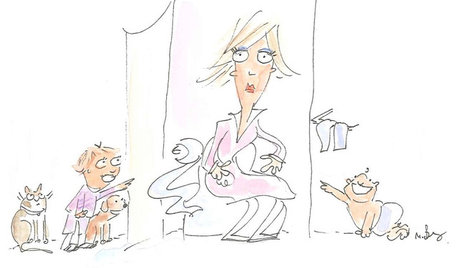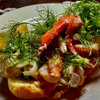Do you correct people about food--or vocabulary??
sooz
7 years ago
last modified: 7 years ago
Featured Answer
Sort by:Oldest
Comments (82)
User
7 years agomarymd7
7 years agoRelated Discussions
What do people think about this tile job?
Comments (8)The installers did not use a leveling system, just regular tile spacers. I'm not as concerned about the lippage (therefore I didn't choose photos that featured it), because 1) it isn't much worse than I expected given a brick pattern with 12x24" tiles 2) doesn't seem realistic to fix it (please correct me if I'm wrong) However the color inconsistency seems fixable? Perhaps I will ask the contractor to color it. Does anyone have any thoughts on whether there is enough grout in the joints. I assumed the edges of the grout should be flush with rectified tile, since there is no bevel....See MoreSister Mary Vocabulary explains it all to you...
Comments (150)Back to interior design and verbs used as nouns... "draperies drape" and "that fabric drapes the wrong way". Drapes is a verb. Drapes is both a noun and a verb. Maybe it started out as a verb only but through usage became a noun as well? It used to bother me when people used the word "loan" as a verb. The verb is lend, the noun is loan. Till I found out that loan IS a verb as well.... I hate it when my illusions are shattered! :) Here is a link that might be useful: drapes...See MoreWhat unusual words are part of your vocabulary?
Comments (74)Lovely words today! I'd never heard slumgullion, ever! And there are recipes for it posted on the 'net! One that I love but isn't really common enough for general speech is obfusc. Even the dictionaries are unclear [teehee] on the word, though obfuscation is in general use. (Obfusc has a general meaning of murkily dark, though it has some kind of special meaning in music) Then there's subfusc, which means dully dark or dusky. Drab (in its coloration meaning) :) It is also what they call the academic dress at Oxford and other universities that have robes and uniforms. Arcane is particularly useful if your audience knows it, but it's not easily discerned from context. And an appropriate description of these words. :) Remonstrate Macerate Masticate Gesticulate Pseudobulb Syllabub Shortfall Windfall Deluge Disarticulate Disgorge...See MoreHow do you politely correct someone in email?
Comments (41)It is possible to have a different perspective on a situation than another person but that doesn't necessarily make you "right" and the other person "wrong." But time and time again, people (in general) interpret their perspective as right and someone else's perspective, that may come from an entirely different set of circumstances that are coloring their perceptions and emotions, as being "wrong." It is certainly hurtful to think you are being told you are wrong even if what is actually happening is just different points of view are being exposed or something is said that one person finds hurtful and another person would shrug off because of different circumstances. It appears from reading this (to me, from my perspective) is that many folks were supporting you by saying, "been there, done that" and trying to help you patch it up with your friend. I know that was my motivation. I also think it is apparent (again, from my reading and take on it), that many folks here didn't think you were wrong, just a victim of circumstances. And for those who tend to be very "right/wrong" judgemental in their use of language, some of that is just semantics and some of that is just personality way of viewing the world. Many styles out there in the human race. But hopefully looking at it from a secure knowledge that folks here truly care and did want to help, you can read into the words typed, some of the care and concern and love that is truly here for you. If you feel very hurt that your friend has been so harsh with you and are upset that she wasn't more understanding, that is certainly reasonable and I have been there as well. SO and I fight often about different perspectives as well, we have hurt each other a great deal. But we work it out as best we can. Such is the human condition, IMHO. Sending my virtual hug and loving thoughts your way for healing over this sad situation....See MoreUser
7 years agoartemis_ma
7 years agolast modified: 7 years agoplllog
7 years agolindac92
7 years agoartemis_ma
7 years agolast modified: 7 years agoUser
7 years agoUser
7 years agoartemis_ma
7 years agoartemis_ma
7 years agolast modified: 7 years agoUser
7 years agoAbby Krug
7 years agoAbby Krug
7 years agoplllog
7 years agorgreen48
7 years agolast modified: 7 years agoannie1992
7 years agorob333 (zone 7b)
7 years agolindac92
7 years agoEmbothrium
7 years agolast modified: 7 years agoplllog
7 years agolast modified: 7 years agoshambo
7 years agoemerogork
7 years agosooz
7 years agoUser
7 years agoartemis_ma
7 years agolast modified: 7 years agoplllog
7 years agolast modified: 7 years agoemerogork
7 years agoGooster
7 years agolast modified: 7 years agoUser
7 years agoUser
7 years agoshambo
7 years agoCarol Baker
7 years agosooz
7 years agoIslay Corbel
7 years agoplllog
7 years agoLars
7 years agoElizabeth
7 years agosushipup1
7 years agoLars
7 years agoIslay Corbel
7 years agolast modified: 7 years agoUser
7 years agolindac92
7 years agoAnnie Deighnaugh
7 years agoAnnie Deighnaugh
7 years agocarolb_w_fl_coastal_9b
7 years agolast modified: 7 years agoCarol Baker
7 years agolast modified: 7 years agoplllog
7 years agodcarch7 d c f l a s h 7 @ y a h o o . c o m
7 years agolast modified: 7 years agoplllog
7 years agolast modified: 7 years ago
Related Stories

FUN HOUZZ10 Things People Really Don’t Want in Their Homes
No love lost over fluorescent lights? No shocker there. But some of these other hated items may surprise you
Full Story
HOUSEKEEPINGCan-Do Cleaning Strategies for Busy People
While you dream of having a maid (to go with the cook and chauffer), this simplified cleaning routine can keep your real-world home tidy
Full Story
LIFE21 Things Only People Living With Kids Will Understand
Strange smells, crowded beds, ruined furniture — here’s what cohabiting with little monsters really feels like
Full Story
CONTAINER GARDENSHappy Houseplants, Happy People
Potted plants add life and beauty to a room. Learn easy ways to keep them healthy
Full Story
SMALL HOMES16 Smart Ideas for Small Homes From People Who’ve Been There
Got less than 1,000 square feet to work with? These design-savvy homeowners have ideas for you
Full Story
COLORHave You Heard the Hues? 15 Colors You May Not Know About
Name-drop these shades at holiday parties — or better, try one on your walls — and expand your palette possibilities
Full Story
KITCHEN DESIGNStay Cool About Picking the Right Refrigerator
If all the options for refrigeration leave you hot under the collar, this guide to choosing a fridge and freezer will help you chill out
Full Story
FUN HOUZZGuessing Game: What Might Our Living Rooms Say About Us?
Take a shot on your own or go straight to just-for-fun speculations about whose homes these could be
Full Story
COMMUNITYCommunity Building Just About Anyone Can Do
Strengthen neighborhoods and pride of place by setting up more public spaces — even small, temporary ones can make a big difference
Full Story
KITCHEN DESIGNKitchen Counters: Try an Integrated Cutting Board for Easy Food Prep
Keep knife marks in their place and make dicing and slicing more convenient with an integrated butcher block or cutting board
Full StorySponsored
Columbus Design-Build, Kitchen & Bath Remodeling, Historic Renovations




annie1992